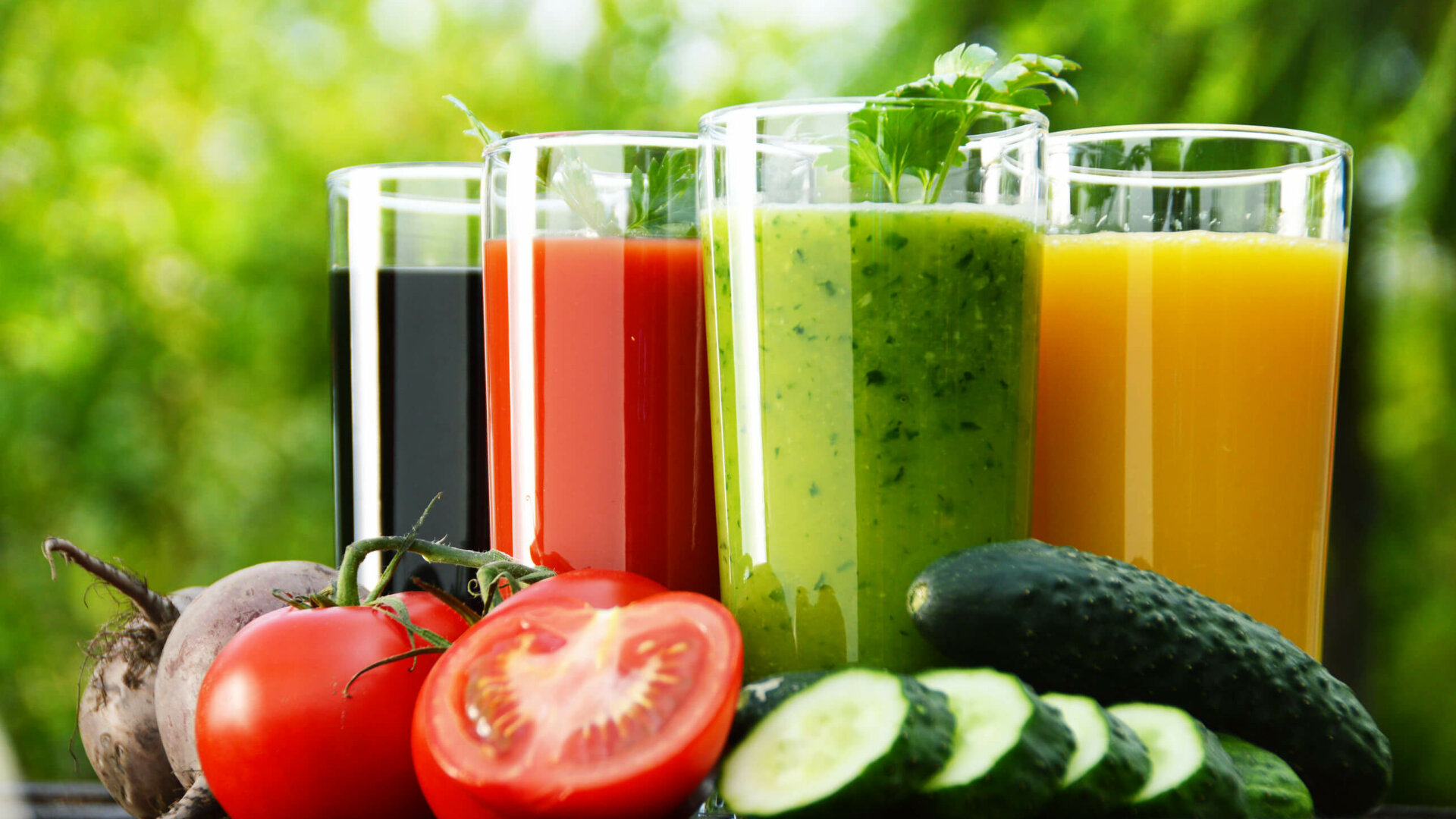There is an interesting dynamic between the science of nutrition and the fitness industry. Any good scientist will tell you that the answers we find from scientific studies are hard to generalize. That is, the results and answers we get may not always apply to other people, settings, or treatments. But, when it comes to the fitness industry, that generalizability is ignored. Companies are quick to take the results of a study and use them to market a product or service they offer. You can see this take place with supplements, exercise classes, and perhaps most notably with trendy diets. Because of America’s affinity with anything fat loss, dieting strategies are some of the easiest to market.
Perhaps the most controversial types of diets being sold today are the detox or cleanse diets. Many companies sell expensive diet kits that are geared toward helping you cleanse your body and shed unwanted weight. They cite scientific studies which seem to agree with their claims that their products and strategies will whip you into shape, but just how accurate are their claims? Do any of these diets actually help you get healthy and lose weight? While the claims these companies make may seem to be backed by science, their application of the concepts is often heavily biased.
Types of Detox Diets
Just like everything else in the fitness industry, there is no one-size-fits-all approach to detox diets. The dieting strategies are different and the supplements being sold as part of the detoxes are slightly different as well. Everyone has their own spin on how you should approach a detox diet. This makes sense given the fact that companies are trying to sell you their own special product, not just the same one you can buy from the website next door. But, as far as detox diets go, these are a few main types you will find advertised around the internet:
The Juice Cleanse
Some of the most popular detox/cleanse diets are those that feature juices or other liquid concoctions. These types of detox diets usually restrict you to consuming nothing but juice or some other liquid for several days. Often times, the diet is comprised of different combinations of fruit and vegetable juices that you drink in place of a normal meal. However, there are some cleanses that are much more extreme. One such cleanse requires you to drink nothing but a tea mixture that includes maple syrup, lemon juice, and cayenne pepper.
Whatever the drink mixture, they all seem to share common ground in that you cannot eat regular food for the duration of the diet. Instead, you have to buy their special juices and/or kits in order to make your own juice. This is, of course, how they capitalize on the idea of a juice cleanse as they mark up the price of their product and enjoy huge profit margins.
The “Clean Foods” Detox
Juice cleanses kind of started the whole detox craze, but in recent times a less extreme detox approach has become popular. Rather than restrict you to only juice, the new age detox limits you to eating only “clean” foods. The marketers of these types of cleanses usually define these as organic fruits and vegetables, organic nuts and seeds, and grass fed/hormone-free/antibiotic-free meat. However, different variations do exist which may limit certain food criteria even further. These detox diets usually last several weeks as opposed to a few days.
Companies make money on these types of detox diets in couple of ways. One way is to offer a food delivery service which provides you with the exact foods you need to complete the diet. The other is to sell you a supplement package that will accompany and enhance the detox diet you will complete on your own. Either way, the package they sell to you is often quite expensive.
The Colon Detox
The third type of detox that is popular today is the colon detox/cleanse. This type of detox isn’t really a diet at all. However, companies will often advise you to change your diet in combination with the detox. Instead, the colon detox focuses on products or supplements which help you clear out your digestive tract. This can take the form of proprietary supplements, special tea, or even laxative type products which are aimed at helping you to eliminate any built up waste in your colon.
These types of detoxes are generally the least expensive and least restrictive in terms of what you can eat. However, they can be pretty inconvenient given the fact that they mess with your bowel movements. This can make for some uncomfortable situations when nature calls at the wrong time.
What the Science Says
As you can see, there are many different types and variations of detox diets that exist today, but what is interesting is that no matter which tactics or supplements are being used, companies still find a way to justify their claims with scientific evidence. Sometimes, this comes in the form of anecdotal evidence, while other times they cite real scientific studies. However, it is important to look deeper into the literature rather than take their claims at face value.
Many detox juices and supplements are said to be detoxifying because of one or a few different ingredients they contain. Often times, they will use maybe one or two ingredients that have been shown to have health boosting properties. For example, curcumin (the active component of turmeric), garlic, and St. John’s Wort have been shown to upregulate liver detoxification and/or reduce inflammation [2][3][5]. However, companies often blanket their whole product with the evidence of one ingredient, thus giving the impression that all their proprietary ingredients will boost detoxification. In truth, only certain ingredients will have any helpful effects, and even then, the impact they have on your body can range widely depending on dose and lifestyle factors. Consequently, you are better off acquiring the individual ingredients that are proven to work and foregoing the expensive supplements they try to sell you.
Another common thread among detox strategies is the use of high fiber supplements, or even laxatives, to help support digestive health. Of course, fiber is an essential part of a well-balanced diet for many reasons including the elimination of toxic substances in the digestive tract [4][7]. However, it isn’t necessary to get fiber from a supplement in order for it to boost your health. Fiber from fruits and vegetables is just as effective and actually carries with it other vital nutrients that you can’t find in a fiber supplement. Even so, the fiber supplements that detox companies will try to sell you are often overpriced. The active ingredients that actually help you can be found for much cheaper prices elsewhere. And, as far as laxatives go, you should not need to rely on laxatives in order to have regular bowel movements. Otherwise, it would be best to consult a medical professional to help address that issue.
Last but not least, these diets often feature either “clean” foods, or even the elimination of solid foods entirely. Although “clean” foods or juices can still result in a caloric surplus, switching from the standard American diet to these more restrictive diets likely results in a significant caloric deficit. It is established in the literature that caloric restriction results in an upregulation of detoxification in both the liver and the intestines [1][6]. This essentially means that a lot of the detoxing properties of these diets are derived from caloric restriction rather than the fancy ingredients or tactics they try to sell you. Thus, combining some of the proven ingredients mentioned above with caloric restriction may increase their potential health benefits, but we can’t be sure given the lack of scientific evidence.
Conclusion
In the end, it seems that these detox dieting strategies may not be completely useless after all. However, the products that detox companies try to sell you are often overpriced and perhaps entirely unnecessary. Certain supplements actually do have some scientific rationale in terms of detoxification, but the proprietary blends these companies try to sell you are often underdosed and/or contain useless ingredients. Additionally, the use of clean food or juices is often just a veiled tactic to promote caloric restriction. A caloric deficit will boost detoxification pathways in the body, but it doesn’t have to be accomplished through extreme restriction of certain foods.
If increasing detoxification in your body interests you, take what the science says and apply it to your own life. Investigate and try some of the compounds that have shown promise in the literature. Engage in occasional bouts of caloric restriction for the potential health benefits and gauge your own results appropriately. Just be smart and don’t fall prey to the overpriced products and services that detox companies try to sell you.
References
- Brandhorst S, Choi IY, Wei M, Cheng CW, Sedrakyan S, Navarrete G, Dubeau L, Yap LP, Park R, Vinciguerra M, Di Biase S. A periodic diet that mimics fasting promotes multi-system regeneration, enhanced cognitive performance, and healthspan. Cell metabolism. 2015 Jul 7;22(1):86-99.
- Chang HS, Ko M, Ishizuka M, Fujita S, Yabuki A, Hossain MA, Yamato O. Sodium 2-propenyl thiosulfate derived from garlic induces phase II detoxification enzymes in rat hepatoma H4IIE cells. Nutrition research. 2010 Jun 1;30(6):435-40.
- Dürr D, Stieger B, Kullak‐Ublick GA, Rentsch KM, Steinert HC, Meier PJ, Fattinger K. St John’s Wort induces intestinal P‐glycoprotein/MDR1 and intestinal and hepatic CYP3A4. Clinical Pharmacology & Therapeutics. 2000 Dec 1;68(6):598-604.
- Kimura Y, Nagata Y, Buddington RK. Some dietary fibers increase elimination of orally administered polychlorinated biphenyls but not that of retinol in mice. The Journal of nutrition. 2004 Jan 1;134(1):135-42.
- Piper JT, Singhal SS, Salameh MS, Torman RT, Awasthi YC, Awasthi S. Mechanisms of anticarcinogenic properties of curcumin: the effect of curcumin on glutathione linked detoxification enzymes in rat liver. The international journal of biochemistry & cell biology. 1998 Apr 30;30(4):445-56.
- Renaud HJ, Klaassen CD, Csanaky IL. Calorie restriction increases P-glycoprotein and decreases intestinal absorption of digoxin in mice. Drug Metabolism and Disposition. 2016 Mar 1;44(3):366-9.
- Trautwein EA, Kunath-Rau A, Erbersdobler HF. Increased fecal bile acid excretion and changes in the circulating bile acid pool are involved in the hypocholesterolemic and gallstone-preventive actions of psyllium in hamsters. The Journal of nutrition. 1999 Apr 1;129(4):896-902.


